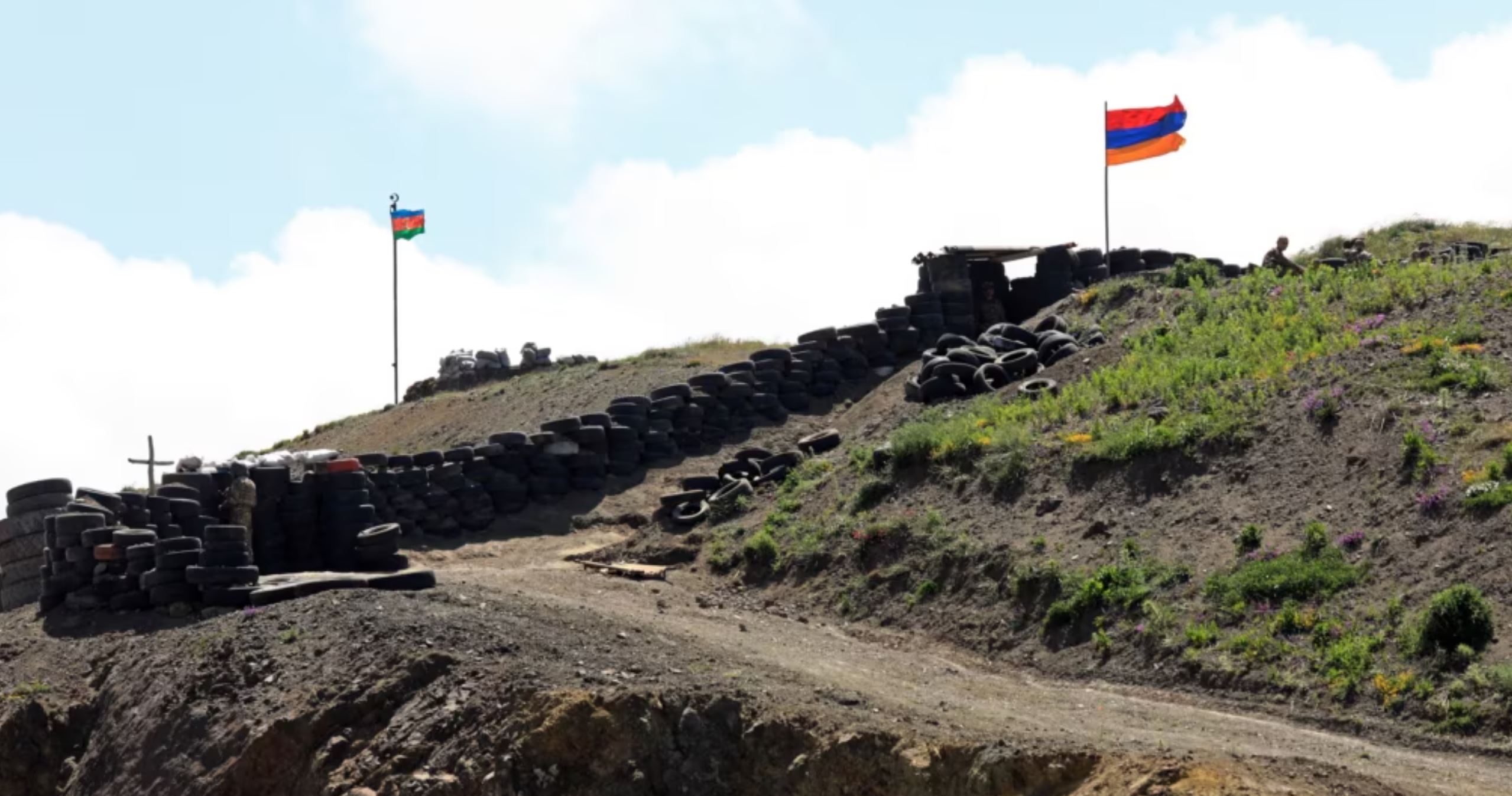Yerevan and Baku Announce Agreement on Peace Treaty Draft as Pashinyan Signals More Concessions
- (0)

Pashinyan Discusses Road through Syunik, New Constitution and End to EU Mission in Armenia, While Aliyev Says ‘Level of Trust in Armenia is Close to Zero’
“The Peace Treaty is ready to be signed,” an Armenian Foreign Ministry statement on Thursday said in announcing that Yerevan has accepted Baku’s latest proposals regarding the remaining contentious points of the text of a peace treaty between Armenia and Azerbaijan.
“The Republic of Armenia is ready to begin consultations with the Republic of Azerbaijan on the dates and venue of signing the treaty,” the Armenian foreign ministry said.
Foreign Minister Jeyhun Bayramov of Azerbaijan announced earlier on Thursday that the two sides had agreed to the remaining two outstanding articles of the draft treaty, adding that Armenia must now change its constitution.
“The process of negotiations on the text of the peace agreement between Azerbaijan and Armenia has already been completed,” Bayramov told journalists on Thursday as reported by state-run news agencies.
“The work on the text has been completed,” he said. “At the next stage, territorial claims against Azerbaijan should be removed from the constitution of Armenia. In addition, the Minsk Group and its remnants should be abolished.”
Armenia’s Foreign Ministry received Baku’s latest proposals late last month. Based on statements made by Bayramov and other Azerbaijani officials since then, it could be inferred that Baku continued to reaffirm its demands for the two countries to withdraw international lawsuits filed against each other and ban the presence of third-party monitors or troops on the Armenian-Azerbaijani border.
The issue of amendments to Armenia’s Constitution was spearheaded by President Ilham Aliyev of Azerbaijan, whose repeated threats and insistences have become regular talking points for high-level Azerbaijani officials.
Another issue continuously hammered by Aliyev and his regime is the creation of a so-called land “corridor” through Armenia linking Azerbaijan with Nakhichevan.
Prime Minister Nikol Pashinyan spoke to reporters on Thursday soon after the foreign ministry statement was made public, and explained his position on some of the aspects of Yerevan’s posturing, which was considered by opposition forces as a “direct admission” that the prime minister was formulating policy “at the behest of an external party.”
“The external actors making such a demand are Turkey and Azerbaijan,” Kristine Vardanyan, a member of the opposition Hayastan bloc, said.
Pashinyan told reporters on Thursday that his government intends to provide a road through Armenia to Azerbaijan, while rejecting the notion of a so-called “corridor.”
“How we will give the road is fixed and formulated in detail in the last article. We are waiting for an official response from Azerbaijan, and when we get that response to our proposal, we will be ready to implement our proposal in the next second,” Pashinyan said without elaborating on the specifics.
He added, however, that Armenia’s approach is “the ‘Crossroads of Peace’ project, and we are ready to implement everything that fits into this project.”
On the matter of the European Union Mission in Armenia, Pashinyan said that Yerevan has agreed that “sides will not deploy third party forces along the common border after the peace agreement enters into force.”
Earlier Pashinyan had said that Armenia would agree to the withdrawal of such missions only from the demarcated territories.
As Yerevan was making these announcements and Pashinyan was telling reporters about his government’s plans to make policy changes based on the peace treaty, Aliyev was telling a forum in Baku that “the level of trust in Armenia is close to zero.”
“We do not trust any of their words. Because these are not people we can trust, including today’s government,” Aliyev said during a speech at a so-called Global Forum in Baku.
Meanwhile, he called the EU monitoring mission in Armenia a “reconnaissance mission.”
“The so-called European monitoring mission, which is actually a reconnaissance mission of the European Union, is spying day and night on our border, looking just for places where they can penetrate. We have enough intelligence information on this so-called monitoring mission,” Aliyev emphasized.
On the issue of the constitution, Pashinyan had said on Wednesday that the new constitution sought by him “may have a regional significance as well” and insisted that it was not put forth at Azerbaijan’s behest.
Pashinyan was asked by reporters about why Yerevan had changed its position articulated as recently as last week.
The prime minister explained that the positions were not changed, but rather, “we changed our perception as a result of analyzing the text.”
“We had a discussion in the Security Council and we came to the conclusion that the process of exchanging these proposals on the text [of the treaty] had already exhausted itself and we moved to the next stage by analyzing the text of the peace agreement as a whole. As a result of this analysis, we came to the conclusion that we can consider that this compromise text, formed as a result of four years of negotiations, can be acceptable to Armenia,” Pashinyan explained.



















